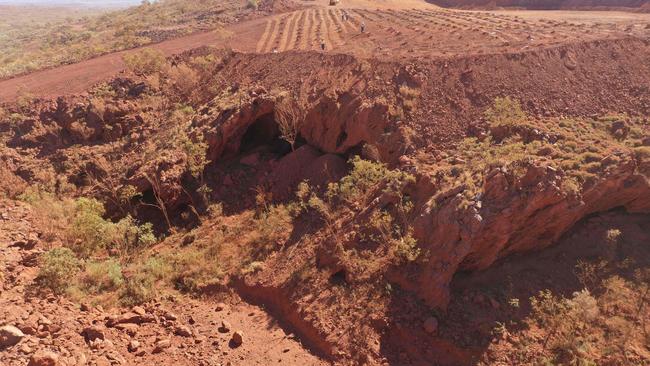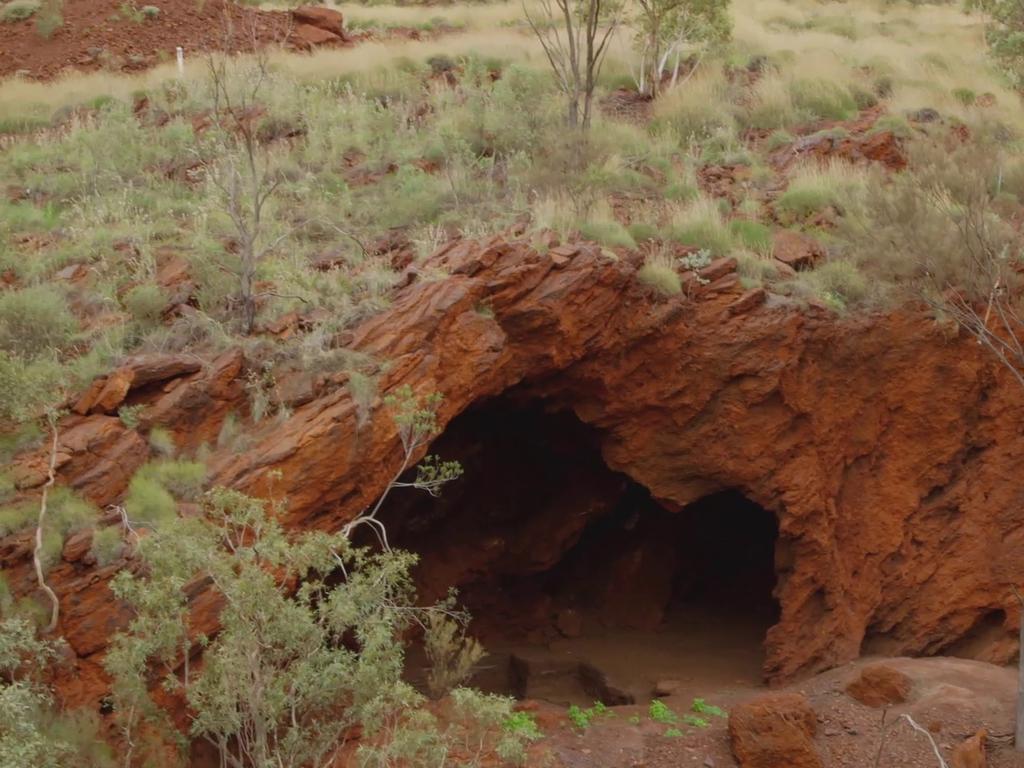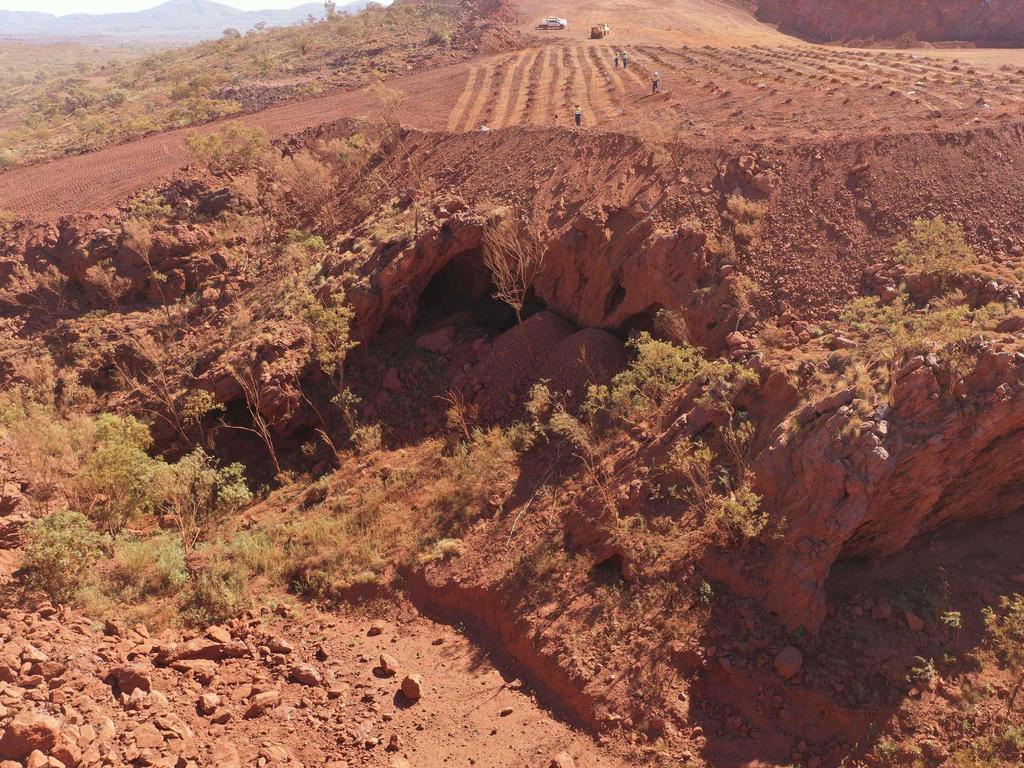Juukan Gorge caves destroyed to access $135m in iron ore, Rio CEO JS Jacques says
Rio’s decision to destroy the ancient Juukan Gorge caves allowed it to access iron ore worth $U135m, its chief executive says.

Rio Tinto’s decision to destroy the ancient Juukan Gorge caves in Western Australia’s Pilbara allowed it to access iron ore worth $US135m, the company’s embattled chief executive JS Jacques has said.
Appearing before a parliamentary inquiry into the incident on Friday, Mr Jacques revealed that the mine plan option that involved the destruction of the caves — which had been identified years earlier as having exceptional heritage importance — would allow it to mine another eight million tonnes of high-grade iron ore.

The company revealed on Tuesday that it had another three options for its Brockman mine, all of which would have avoided the caves, but decided in 2013 to pursue the fourth option that would involve the caves’ destruction. On Friday, Mr Jacques revealed the additional ore had a net present value at the time of $US135m.
He also confirmed the company did not inform the traditional owners of the caves, the Puutu Kunti Kurrama and Pinikurra people, of the alternatives when it told them of its plans for the caves.
“The PKKP was not made aware that four options were available in 2012-2013. At the relevant meeting in 2013, only one option was presented to the PKKP,” Mr Jacques said, adding the company was sorry for the incident and “fully acknowledge that better decisions should have been made”.
He said the company had taken numerous steps in the Pilbara to scale back its mine plans to avoid cultural and environmental impacts, having removed some 380 million tonnes from its plans over the past five years.
He also challenged the account of his predecessor Sam Walsh, who told The Australian Financial Review that he had given instructions in 2013 for the company not to mine the caves.
Mr Jacques said the company and a law firm had investigated the company’s records and could not find any evidence of such advice from Mr Walsh.
“At this point in time .. no communication as referred to by Mr Walsh in the press has appeared in any fashion,” he said.
While archaeological reports had flagged the significance of the caves in 2014 and 2018, the company said none of its senior executives were aware of those findings until the incident was unfolding.
Mr Jacques said there had been a series of missed opportunities over several years for the miner to change its plans, with the company knowing since as early as 2008 that the sites held “special cultural value”.
The mining giant also confirmed that its agreements with the PKKP required the indigenous group to release Rio Tinto from any actions or claims from the PKKP, including the Native Title Act, the Aboriginal Heritage Act and the Racial Discrimination Act.
But Mr Jacques told the committee that it had no intention to take any legal action against PKKP, which should allow the group to discuss at length its experiences with Rio Tinto.
Asked if anyone had been disciplined or fired over the episode, Mr Jacques said accountability was “a complex issue”.
“It did cover 17 years, many people have been involved,” he said.
“The reviews are underway. There is not one single person which had the responsibility for the situation, that’s where we are at this point in time.”
Amid ongoing calls for his resignation, Mr Jacques said the mining giant would look to increase its levels of Indigenous employment - particularly at its senior levels - as part of its efforts to rebuild its Indigenous relationships.
The incident has reinvigorated efforts by the WA government to overhaul the Aboriginal Heritage Act that allowed Rio Tinto to gain legal approval for the caves’ destruction.
WA’s Aboriginal affairs minister Ben Wyatt told the inquiry that the new regime would be much more vigorous and would give the government the ability to order projects to stop.
The pressure on Mr Jacques, meanwhile, does not look like going away.
AustralianSuper’s director of ESG & Stewardship, Andrew Gray, said on Friday that Rio’s actions were “totally unacceptable” and pledged to ensure there was “true accountability”.






To join the conversation, please log in. Don't have an account? Register
Join the conversation, you are commenting as Logout